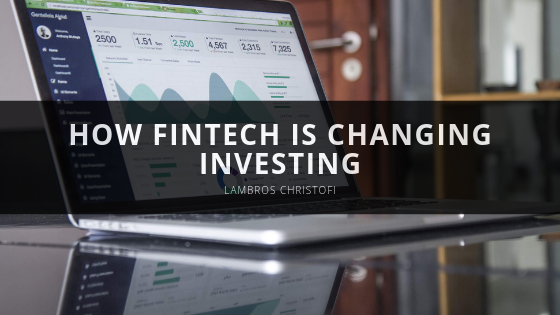The digital era is undoubtedly changing the way people invest their money. Today, most people would prefer to work with financial advisors who use some type of digital tools. Financial technology, also known as Fintech, is leading this investing revolution.
Investing and the Fintech Revolution
Investing is no longer exclusively for the wealthy. Today, anyone can invest in mutual funds, stocks or real estate with an internet connection and a laptop. Also, Fintech now makes it possible for people with minimal assets to invest. Not long ago, investing required a large account with one of the top investment banks. Now, people can open an account with just a few bucks and start investing.
Fintech companies like Robin Hood, Acorns and Betterment let people invest in mutual funds, stocks and exchange-traded funds with small deposits and the help of artificial intelligence (often referred to as Robo-advisors). Investors can choose to use the services of a human advisor, but it usually requires accounts with much more substantial deposits.
Several years ago, Fintech was just the use of technology to help streamline the tons of paperwork involved in banking. Today, banks that do not incorporate Fintech into the range of banking services they offer will soon find themselves sitting on the sidelines.
How Millennials Affect Fintech and Investing
Millennials are now the most populous generation in the United States, and they demand mobile/digital offerings in almost everything they touch. For most in this generation, their smartphones are how they interact with their banks. From depositing money to investing in individual stocks, millennials demand a digital platform that suits their mobile lives.
Many experts agree Fintech will revolutionize banking for communities and people with limited access to traditional banking. Private banking with all the “perks” was once reserved for the ultra-wealthy. Today, Fintech opens the door to people who had almost no access to the financial system.
However, Fintech also opens the door to predatory practices. Unfortunately, many of those with limited access to the financial system also have little to no financial education. Although most people now have access to banking and investing, they are still exposed to the risks involved in investing, including companies that are sure to take advantage of those with little experience.
